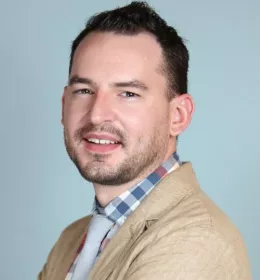Managing the Atom Fellowship
For current doctoral students in the dissertation-writing stage, recent recipients of a Ph.D. or equivalent degree, and university faculty members and other mid-career professionals with relevant expertise.
Applications for the 2026-2027 academic year open October 1, 2025.
The Project on Managing the Atom offers fellowships for pre-doctoral and post-doctoral scholars, and mid-career professionals for ten months, in the stimulating environment of the Belfer Center for Science and International Affairs at the Harvard Kennedy School. Those fellows working on topics related to nuclear weapons often receive fellowships that are shared between MTA and the International Security Program.
The MTA fellows program exposes participants to an interdisciplinary work environment—blending policy and technical concerns—and provides time and space to interact with an international cohort of colleagues, as well as with faculty, senior fellows, and visiting policy makers and other experts.
Areas of Research
MTA fellows are expected to pursue research with a nuclear policy focus. Managing the Atom is shifting to a more focused fellowship program. For the coming year, we are especially interested in scholars working on various aspects of rethinking nuclear deterrence and reducing its dangers, and in scholars exploring how best to resolve regional nuclear proliferation crises.
Expectations
Fellows are expected to:
- Produce a substantial piece of work completed during the fellowship period
- Present their research at a seminar open to the public at least once during the fellowship period
- Attend seminars of other MTA research fellows
- Participate in MTA activities (meetings, communications efforts, etc.) as appropriate
- Regularly correspond with MTA staff and senior faculty about research progress and activities
Stipend Information
MTA offers ten-month stipends of $50,000 to pre-doctoral fellows and $60,000 to post-doctoral fellows. Interested candidates are encouraged to apply for other sources of funding. All applicants should clearly indicate on their application form whether they are seeking full or partial funding, and indicate other potential funding sources. Non-stipendiary appointments are also offered, but the application process remains the same. Stipends come with health insurance and discounted MBTA passes, as well as shared office space and modest administrative support.
Length
September 1, 2026 to June 30, 2027
Application Deadline
The fellowship application period for the 2026-2027 academic year will open Wednesday, October 1, 2025 and close Monday, December 1, 2025. Recommendation Letters are due December 15, 2025. Applicants will be notified by February 15, 2026.
Application Requirements
- Research Statement (3-5 double-spaced pages)
- This should include a statement that describes the policy relevance of at least one component of the proposed research. This statement should articulate the intended audience, as well as the problem or problems that the research will help the intended audience address.
- CV/Resume
- Unofficial transcript (pre-doctoral fellow applicants only)
- Writing sample (less than 50 double-spaced pages)
- Contact information for three recommenders submitting letters on your behalf
Eligibility
Eligible candidates include current doctoral students, recent recipients of a Ph.D. or equivalent degree, and university faculty members. In addition to candidates from academia, we also welcome applications from candidates from national laboratories, government, and industry (though academic salaries are not likely to be competitive unless candidates have their own funding).
Applicants for pre-doctoral fellowships must have passed general examinations prior to appointment. We welcome applications from political scientists, historians, economists, sociologists, legal scholars, and other social scientists as well as engineers, physicists, and others with technical training.
Scholars or practitioners with their own funding are eligible to be nonstipendiary fellows, if they feel they would benefit from the intellectual community at MTA. We encourage you to apply through the fellowship system and note your circumstances. If you have questions, email Matthew Parent (matthew_parent@hks.harvard.edu).
MTA is committed to building a diverse and inclusive research community. Hence, we welcome applicants from all over the world and we strongly encourage women and scholars from underrepresented communities to apply.
Application mentorship program
The MTA application mentorship program is intended for applicants from communities that have historically been underrepresented in the nuclear field. This includes, but is not limited to: BIPOC (Black, Indigenous, and People of Color), non-cisgender individuals, members of the LGBTQIA+/queer community, individuals from low-income backgrounds, and individuals from developing countries. If you think you fall into one of these groups but are not sure, we still encourage you to sign up. Applicants will be paired with current MTA fellows who can answer questions about MTA and help you prepare a quality application. Participating in this program is completely voluntary and will not affect our decision about your application. If you are interested, contact matthew_parent@hks.harvard.edu.
Frequently Asked Questions
Please click here to view answers to frequently asked questions about applying to Belfer Center fellowships.
Contact
For questions about the fellowship and application atom@hks.harvard.edu

